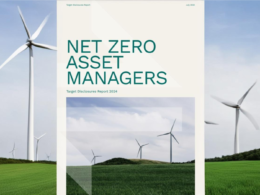The early decommissioning of coal-fired power plants (CFPPs) is essential to limiting global temperature rise to 1.5°C and preventing the most severe impacts of climate change. Achieving this target requires a complete phaseout of unabated coal power by 2040. However, for emerging economies like Indonesia, Pakistan, and Vietnam, where coal dominates the energy mix, the transition to clean energy is riddled with financial and legal complexities.
Many of these nations face unique challenges due to the relatively young age of their CFPPs, often built in the past decade with substantial foreign investment. These plants operate under legally binding contracts that guarantee long-term returns for investors, posing significant barriers to early retirement. According to the World Resources Institute (WRI) report, ‘Understanding the Legal Implications of Early Decommissioning: Case Studies of Foreign-Invested Coal Power Plants in Asia’, breaking such agreements could result in crippling financial penalties and lengthy arbitration disputes, making climate targets harder to achieve.
CFPPs financed by foreign entities are typically governed by agreements such as Power Purchase Agreements (PPAs) and Government Support Agreements (GSAs). These contracts provide predictable returns for investors but restrict host governments’ ability to enforce ambitious climate policies.
For example, policies like carbon pricing, mandatory early closures, or reduced utilisation of coal plants could trigger compensation clauses in these agreements. Governments would then need to reimburse investors for revenue losses or increased operational costs, significantly straining public finances.
The financial burden is substantial. In Indonesia alone, the remaining value of CFPPs is estimated at $15 billion, excluding future earnings and unpaid interest. Similarly, Pakistan, where the average CFPP is only four years old, faces immense challenges in retiring plants well before their typical 50-year lifespan.
Contracts governing foreign-financed CFPPs often include international arbitration clauses, allowing investors to pursue compensation through courts that tend to favour their interests. Governments found in breach of these contracts could face substantial fines, exacerbating fiscal constraints and diverting resources from critical climate initiatives.
Countries with limited fiscal capacity are unlikely to afford such penalties or risk their standing with global investors. This creates a legal and financial quagmire for nations looking to transition away from coal.
Despite these challenges, Indonesia is demonstrating bold leadership by committing to retire all coal-fired power plants by 2040. As the world’s largest coal exporter, Indonesia’s ambition aligns with global climate goals but requires innovative solutions and strong international support to succeed.
One such initiative is the early retirement of the Cirebon-1 coal plant, achieved through a $325 million refinancing package facilitated by the Asian Development Bank (ADB). Supported by concessional funding from Japan and Germany, the deal ensures that the plant will close five years ahead of schedule while allowing investors to recover their capital. This model highlights the potential for collaboration between governments, MDBs, and investors in accelerating the coal phaseout.
Chile provides another example of innovative coal phaseout strategies. The Inter-American Development Bank (IDB) enabled the early closure of a coal plant operated by Engie Energía Chile by offering a loan tied to emission reductions. This approach incentivised the plant’s early retirement while supporting renewable energy development.
Such initiatives underscore the importance of tailored financing mechanisms to overcome financial and legal barriers to coal retirement.
The success of coal phaseout efforts hinges on the collaboration of all key stakeholders, each playing a vital role in ensuring a smooth and sustainable transition to clean energy. These stakeholders bring unique expertise, resources, and responsibilities to the table.
Host country governments are at the forefront of these efforts, leading negotiations and setting clear targets for retiring coal plants. Foreign investors and project companies also play a critical role, particularly those from China, Japan, and South Korea. These countries dominate coal investments in South and Southeast Asia through institutions like the Export-Import Bank of China, the Japan Bank for International Cooperation, and private banks such as Sumitomo Mitsui Banking Corporation. Their involvement in renegotiating contracts and redirecting investments to renewable energy projects is essential to phasing out coal power.
Multilateral development banks (MDBs), including the Asian Development Bank (ADB), the World Bank, and the Inter-American Development Bank (IDB), are instrumental in facilitating coal phaseouts.
The home governments of investors must also support these efforts by encouraging their financial institutions to prioritise climate-aligned solutions. Additionally, development and advocacy organisations and local communities also need to be on the table.
Collaboration among these stakeholders is essential for overcoming the complex legal, financial, and social challenges of phasing out coal power. Together, they can drive meaningful progress toward a cleaner, more sustainable energy future.
The WRI report outlines practical steps to accelerate the transition from coal to renewable energy, focusing on addressing the legal and financial challenges associated with early coal plant closures. These steps provide a roadmap for governments, investors, and stakeholders to collaborate effectively in achieving climate goals.
One of the key recommendations is contract renegotiation. Host governments and investors need to revisit and modify existing agreements to enable the early closure of coal-fired power plants. This can be achieved through innovative approaches such as refinancing loans at lower interest rates, issuing transition credits, or repurposing coal plants for renewable energy generation.
International support is another critical component of the transition. Multilateral development banks (MDBs) and donor nations must step in to provide financial assistance and risk mitigation tools that can alleviate the economic burden on host governments.
The report also emphasises the need for policy reforms. Governments should align their domestic legal frameworks with global climate objectives to attract foreign investment in low-carbon technologies.
Investor-state mechanism reform is crucial to ensuring that the transition is equitable and efficient. Exploring alternative dispute resolution mechanisms, such as state-to-state arbitration, can help balance the protection of investor rights with the need for sustainable development.
Lastly, the report highlights the importance of regional and global coordination. Establishing dedicated initiatives to facilitate knowledge sharing, provide legal support, and enable financing for coal phaseout efforts is vital. Such collaborations can help scale successful strategies across regions and ensure that resources are effectively mobilised to support the transition to renewable energy.
By implementing these actionable steps, stakeholders can overcome the financial and legal barriers to coal phaseout, driving meaningful progress toward a cleaner and more sustainable energy landscape.
















